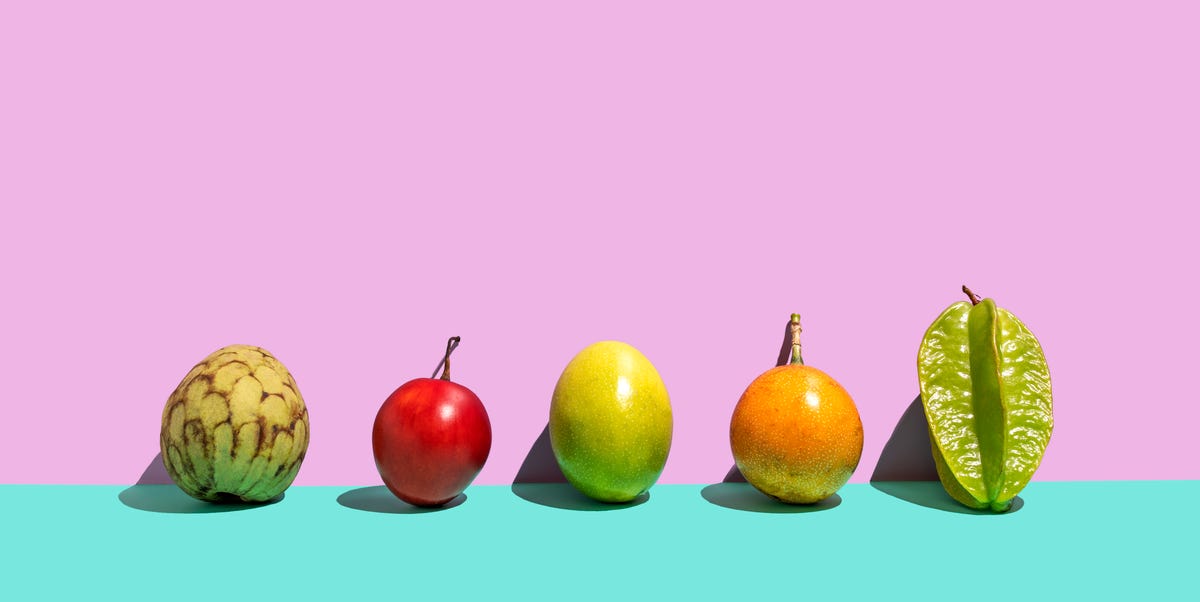
Protein can help keep you fuller for longer, build muscle, lose weight, and more. But what if you could get all those benefits from a fruit, too?
While most people think that protein mostly comes from animal products, there are some fruits that contain almost as much. (In fact, there’s one in particular that delivers nearly as much protein as an egg.) Here’s what you need to know.
Meet the expert: Jessica Cording, MS, RD, author of The Little Book of Game-Changers: 50 Healthy Habits For Managing Stress & Anxiety.
Which fruit has the most protein?
Passion fruit is the fruit with the most protein. This wonder fruit contains about 5 grams of protein per one-cup serving. (An egg, by comparison, has about 6 grams of protein.)
Why does passion fruit have so much protein?
It’s actually not clear why passion fruit has so much protein — it’s just the way the fruit is.
‘It’s a very nutrient-dense fruit with a lot of different health benefits,’ says Jessica Cording, MS, RD, author of The Little Book of Game-Changers: 50 Healthy Habits For Managing Stress & Anxiety. ‘You’re getting fibre, carbohydrates, vitamin C, vitamin A, and some potassium. It has a lot to offer.’
Do any other fruits come close?
Yup! A few other fruits have similar protein content. Those include:
- Avocado, 4.5 grams of protein per cup
- Guava, more than 4 grams of protein per cup
- Jackfruit, nearly 3 grams of protein per cup
How much protein should I have a day?
Most active women need about 1.2 grams of protein per kilogram of body weight. That usually translates to about 20 to 30 grams of protein at each meal (and possibly more with snacks).
How much passion fruit should I have a day?
The World Health Organisation recommends that adults eat at least 400g of fruit and vegetables a day in order to promote general health and reduce the risk of non-communicable diseases. The NHS advised us to eat at least five 80g portions every day (the 5 A Day campaign), and Cording says that also works for passion fruit.
If you like the taste of it, Cording suggests working passion fruit into smoothies and bowls, or just eating it as-is.
‘It is a little more calorie-dense than other fruits, so just be mindful of that,’ she says.
More in Nutrition
Cut through the noise and get practical, expert advice, home workouts, easy nutrition and more direct to your inbox. Sign up to the WOMEN’S HEALTH NEWSLETTER
